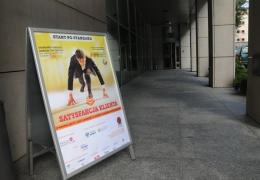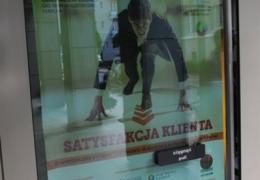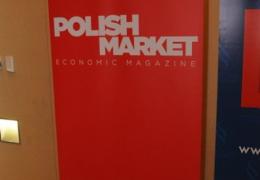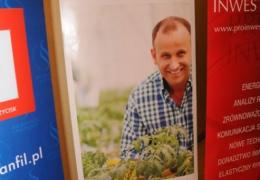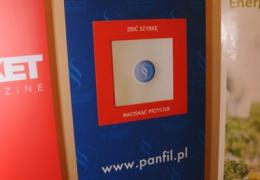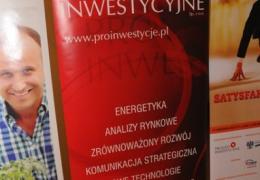Invitation to the debate:
ENERGY CUSTOMER SERVICE STANDARDS
Gas, electricity and heat
27 September 2013 (Friday), 11.00 AM, Polityka weekly magazine’s head office
ul. Słupecka 6, Warsaw
A Good Practice Document for Electricity Suppliers and Transmission System Operators has been developed by the Energy Regulatory Office (ERO). It covers issues related to contract standards, obligations of the companies, customer service, change of supplier, and settlement of disputes. The Association of Power Traders has set up a task team for customer service standards. Its main task is to develop, based on the said ERO document, customer service standards to be followed by electricity suppliers.
In the previous debate “Smart customer in a smart grid, or why Poland needs smart power grids” we already emphasised that energy consumers expect distribution system operators to provide additional services such as: distributed energy storage in particular for renewable sources, local energy balancing, and energy efficiency. Today this is just wishful thinking, and the customers are treated as applicants. Energy customers would like to have remote access to information (e.g. by mobile phone or computer) and, in accordance with the EU directive, to be able to share this information with their private "energy brokers" who support their decisions on the energy market. The customers also want to pay for energy actually consumed rather than for forecasted consumption. They would like to be able to independently (online) select energy tariffs according to their needs.
New tasks of Distribution System Operators are connected with the implementation of the smart power grid system. If all functionalities of the Smart Grid are used, the increase in customer service quality will be ensured. Poland is in the initial phase of development of the smart grid system. There is an ongoing debate on the contents of relevant legislation. The president of ERO believes that regulations on the Smart Metering market should be limited to the necessary minimum to ensure the security and comfort of the customers, e.g. in the field of protection of personal data. On the other hand, the customer, having access to information on the utilities’ consumption, will have the knowledge enabling him to use energy effectively. The necessity to unify Smart Metering standards, at least at the level of procedures and communication protocols, has to be emphasized. Without it, Smart Metering will block the change of supplier instead of facilitating it.
Works on the regulation of energy customer service standards should also take into account the role of prosumers in local energy markets. The Ministry of Economy has announced that the updated version of the "Energy Policy of Poland" is going to be submitted to the Council of Ministers by the end of 2013. It should place emphasis on the determination of local governments’ investment priorities in the field of energy, with attention paid to prosumer energy. Efforts should be taken to coordinate investment plans of municipalities with those of energy companies, especially that in the nearest future Polish municipalities are going to be faced by enormous challenges connected e.g. with meeting the environmental requirements and with using EU funds for regional development. This is connected with the necessity to improve the condition of the energy infrastructure, particularly the power grid, in order to ensure a higher quality of service provided to local communities, to attract investors, and to improve the competitiveness and attractiveness of the region.
In the debate, the main aspects related to the work on energy customer service standards will be presented, including:
- The need to consider the role of prosumers on local energy markets;
- The new roles and responsibilities of DSOs, related to financial settlement of prosumers and the balancing of local micro-installations;
- A model of financial settlements between prosumers and their suppliers (an example based on electricity prices in 2013);
- Presentation of the “Good Practice Document for Electricity Suppliers and Transmission System Operators”;
- Legislation and security of data entrusted to the Metering Data Operator (legal regulations included in the national legislation and relating to metering data protection – pursuant to the Energy Law, and protection of privacy - as defined by the Act on the protection of personal data);
- Energy certification systems.
The following persons have been invited to take part in the debate:
- Marek Kulesa, Office Director, Towarzystwo Obrotu Energią [Association of Power Traders];
- Jarosław Tworóg, Vice-President of the Board KIGEiT;
- Piotr Derbis, Deputy Director for Sales Landys &Gyr;
- Michał Jarczyński, President of the Board, ENEA Operator;
- Edward Słoma, Deputy Director, Energy Department, Ministry of Economy;
- Anna Bednarska, Head of the Committee of Retail Markets of the Market Development and Consumer Affairs Department, URE;
- Prof. Krzysztof Żmijewski, Secretary General of the Public Board for Development of Low-Emission Economy.

